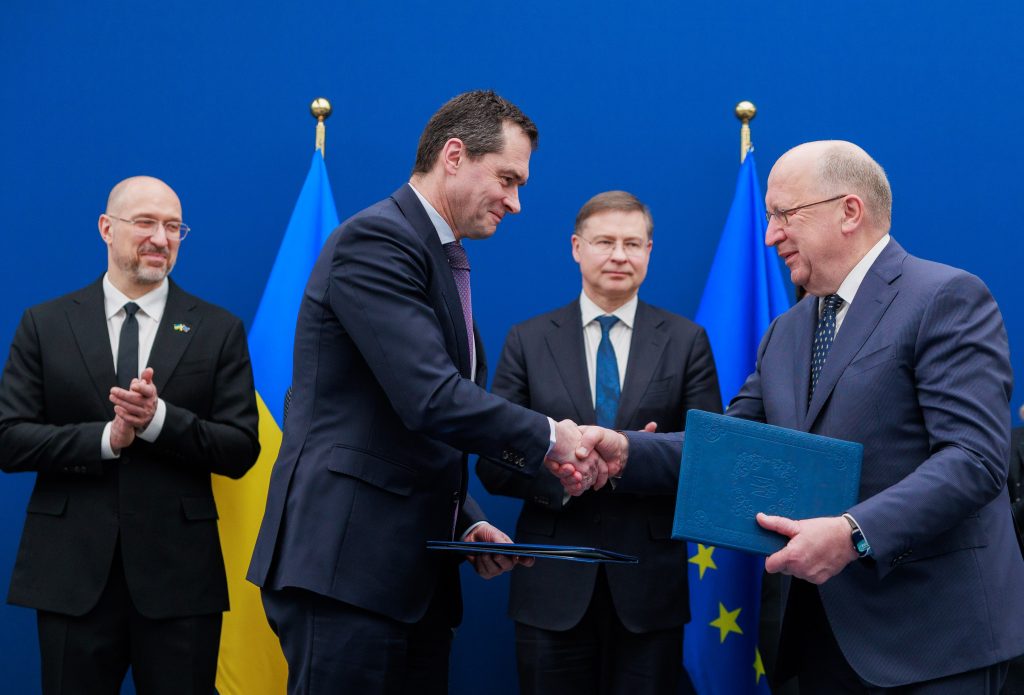By NANNETTE CAZAUBON – European News Journal, Paris

The European Commission plans to step up Ukraine’s participation in the European space programme. A first step was taken in April 2025 with the signing of an agreement between the EU and Ukraine on the country’s participation in the Copernicus component as well as the Space Weather Events (SWE) and Near-Earth Object (NEO) sub-components. The Commission now wishes to take a further step by opening negotiations with Ukraine on its participation in the Governmental Satellite Communications (GOVSATCOM) component of the EU space programme and in the Union Secure Connectivity Programme (IRIS²). It submitted a proposal to EU Member States on 28 October 2025 to authorise the opening of these negotiations.
GOVSATCOM and IRIS² GOVSATCOM’s mission is to provide secure and resilient satellite communication capabilities by pooling the existing satellite resources of Member States and private operators. The multi-orbital constellation IRIS² (Infrastructure for Resilience, Interconnection and Security via Satellite) linked to the existing GOVSATCOM network and planned to be operational in 2030, will comprise 290 satellites and combine the advantages of low Earth orbit (LEO), geostationary orbit (GEO), and medium Earth orbit (MEO) satellites. It will offer enhanced communication capacities to government agencies and businesses, while addressing connectivity dead zones. The system will support a wide range of government applications, primarily in surveillance, crisis management, and the connection and protection of critical infrastructure. |
The need for a secure and resilient global connectivity has increased with the digitisation of the economy and society, and the increasing geopolitical and cybersecurity threats. The envisaged agreement with Ukraine is expected to enhance the resilience of the EU’s communication infrastructure by providing additional secure connectivity capacity in a strategically important region.
Henna Virkkunen, Executive Vice-President for Technological Sovereignty, Security and Democracy, stated that secure connectivity was essential to Europe’s resilience. “By deepening our cooperation with Ukraine, we are strengthening our common security and our ability to act in a constantly evolving world,” she affirmed.
Closer involvement of Ukraine in EU space policies will constitute a further step in deepening the EU-Ukraine partnership in areas essential to the security and stability of Europe and is part of the EU’s ongoing support to Ukraine through various instruments. It also recognises the crucial link between defence and the security of satellite technologies, especially in wartimes.
Andrius Kubilius, Commissioner for Defence and Space, said: “Ukraine’s participation will reinforce Europe’s secure space capabilities at a critical moment. This is a decisive step toward a stronger, more united Europe that can protect its citizens on the ground and in space.”
The negotiation process under Article 218 of the Treaty on the Functioning of the European Union (TFEU) could take time, as the Commission needs the Council’s approval to start negotiations and the Member States must then endorse the international agreement drawn up at the end of those negotiations.






